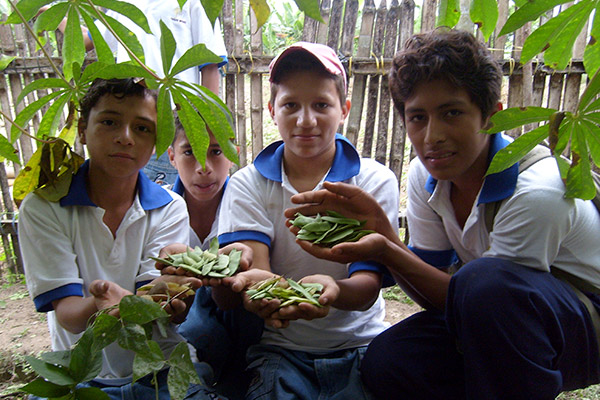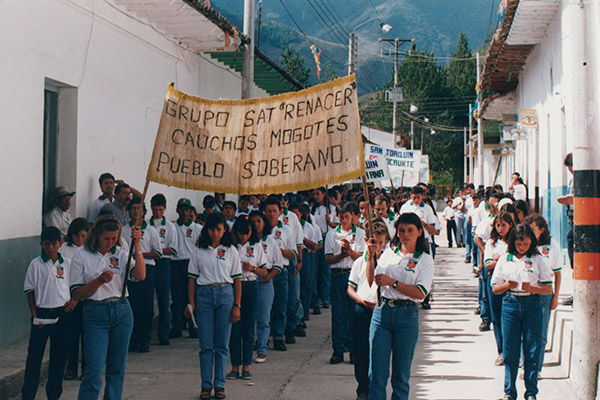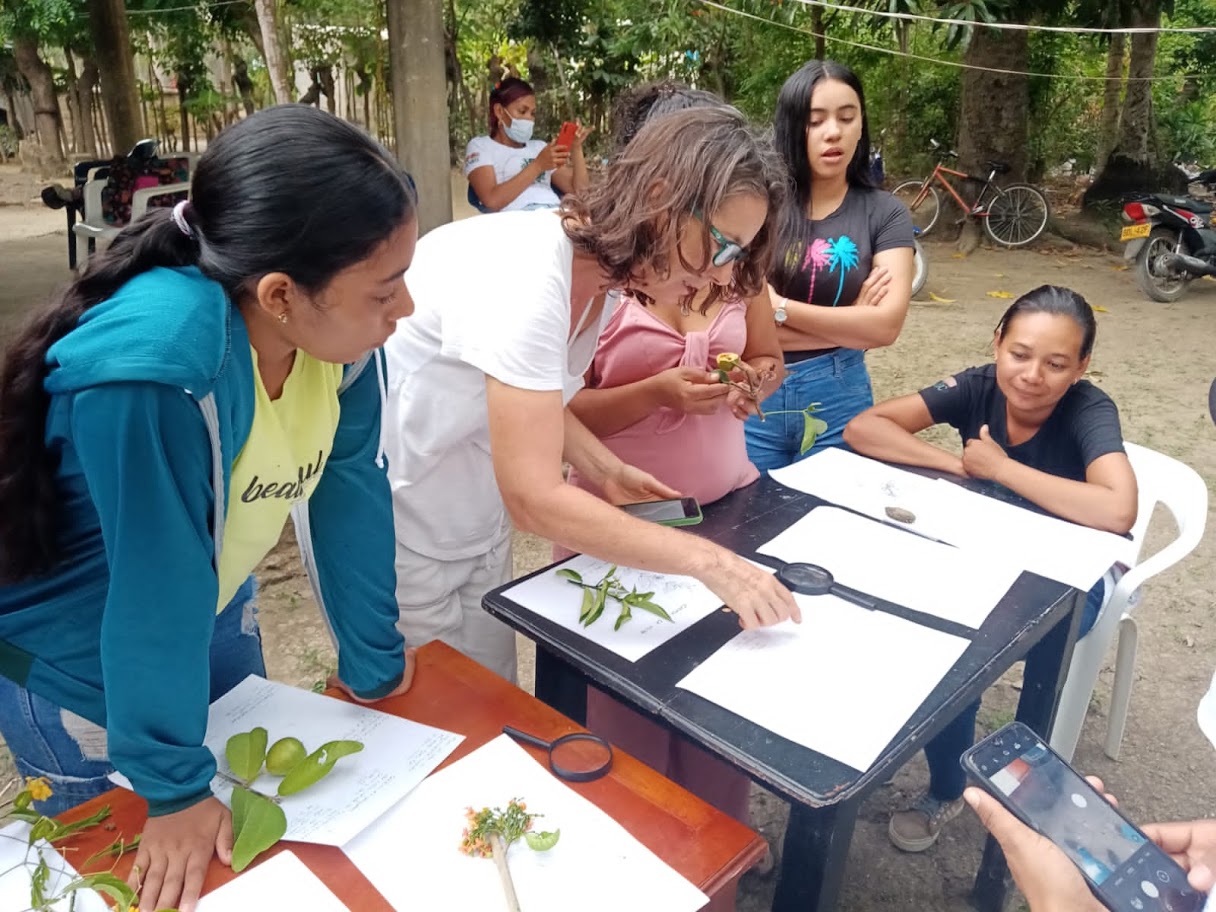
Two Wings
Beyond Classrooms: Education That Inspires Social and Economic Prosperity
Social Advancement Through Education: How FUNDAEC Transforms Communities
As a leading non-profit organization in Austria, we witness how social advancement through education becomes reality. On the occasion of International Education Day, we want to show how innovative educational programs can transform not just individuals, but entire communities. Education, when tied to values like inclusion and service, becomes a tool for creating prosperity, dignity, and lasting progress. Today, we highlight the Preparation for Social Action (PSA) program, developed by the Fundación para la Aplicación y Enseñanza de las Ciencias (FUNDAEC), as an example of this transformative power.

Students engaged in hands-on learning as part of the SAT program, which integrates education with practical skills to benefit their communities.
Rethinking Education: Addressing Real Needs
For years, global efforts have focused on improving access to education to reduce poverty and inequality. Yet, traditional schooling often focuses only on academic success and overlooks the broader needs of communities. It tends to prioritize individual achievements over collective well-being, leaving many communities without the tools to thrive together.
This is where innovative programs like PSA come in. PSA is a non-formal education program that blends academic learning with practical skills and social responsibility. It helps people not just earn a living but also contribute to the development of their communities.
SAT: A Model Rooted in Community
Before PSA, FUNDAEC created the Sistema de Aprendizaje Tutorial (SAT) in the 1970s. This alternative secondary education model was designed to meet the unique needs of rural communities in Colombia, where traditional schools were often unavailable or not useful for local realities. SAT combines academic subjects with practical lessons in areas like agriculture, health, and entrepreneurship. This ensures that students can use what they learn to benefit their communities.
A key feature of SAT is its focus on dialogue-based learning. Students work in small groups, guided by a tutor, to discuss lessons and solve problems together. This method helps them not just learn new ideas but also understand how to apply them in their everyday lives. SAT has expanded to many countries, including Honduras and Brazil, earning recognition for promoting social responsibility and leadership.

The SAT is a formal, non-classroom education program initiated by FUNDAEC in 1974 to contribute to the progress of rural areas.
PSA: Bridging Learning and Local Change
Building on SAT’s success, FUNDAEC introduced PSA to address global challenges in diverse settings, including Africa and Southeast Asia. PSA (Preparation for Social Action) focuses on combining academic subjects with moral and social growth. For example, students in Uganda have applied what they learned in the classroom to improve agriculture, protect the environment, and promote community health.
What makes PSA unique is its ability to empower students to work together to solve local challenges. By connecting practical projects with personal development, PSA encourages critical thinking and teamwork. These activities help students grow individually while improving their communities.
A Broader Vision for Education
Education should do more than prepare people for jobs; it should help them build the skills and connections they need to thrive and contribute to society. Programs like PSA and SAT show us how education can nurture social responsibility and shared prosperity.
These programs go beyond academic learning by teaching students how to collaborate and solve problems in their communities. They also help build relationships and trust, which are key to making positive changes together.

PSA is a non-formal program that helps young people develop skills to contribute to their community's progress and create positive change.
Rethinking Success
Success is often seen as achieving personal goals, like getting a high-paying job or moving to a city. But PSA and SAT challenge this view by teaching that true success is about improving the lives of others. By linking education to service, these programs help students see their achievements as part of a larger effort to build stronger, healthier communities.
Transforming Communities Through Education
The stories of PSA and SAT graduates show how these programs are making a difference. In Colombia, SAT students are promoting sustainable farming and civic engagement. In Uganda, PSA participants are becoming leaders who drive change in their communities. Across the world, these programs are redefining education as a path to both personal growth and collective progress.
Conclusion: Sustainable Change Through Education
Social advancement through education is the key to sustainable development. As a non-profit foundation in Austria, we see how educational projects can transform lives. Educational development cooperation with FUNDAEC shows: When we invest in education, we invest in the future of entire communities.
Support FUNDAEC's educational projects today. Your donations to educational projects enable social advancement through education and sustainable development in communities. As a charitable foundation in Austria, we guarantee that your support reaches where it has the greatest impact.
Donate for Educational Projects

